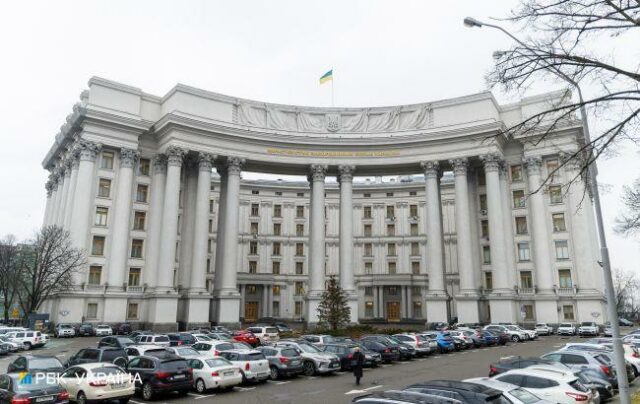### Ukraine Condemns Iran’s Aggression Against Israel: A Call for Collective Action
The Ukrainian Ministry of Foreign Affairs has taken a bold stance by condemning Iran’s recent large-scale military actions against Israel. In an official statement, officials characterized these attacks as “completely unacceptable and irrational,” highlighting the alarming implications for peace and security in the region. This condemnation is not just a political gesture; it reflects deep-seated anxieties over escalating tensions that could spiral out of control, drawing in multiple nations and destabilizing the Middle East.
### The Urgency for Global Solidarity
In light of the recent aggression, Ukraine is advocating for a united international response to prevent the conflict from escalating further. The Ministry’s message is clear: the time for solidarity among nations is now. It’s a call to action that emphasizes the importance of defending democratic values and safeguarding international stability. As we reflect on this urgent plea, consider how collective efforts, much like the global response to the COVID-19 pandemic, are vital in addressing crises that threaten world peace.
For example, when the pandemic unfolded, countries joined forces to share vital research and resources, demonstrating that collaborative action leads to significant outcomes. This same spirit of cooperation is essential in resolving violent conflicts.
### The Complexity of Middle Eastern Geopolitics
The current situation underscores the intricate nature of Middle Eastern geopolitics, where alliances and hostilities intertwine. For instance, a study by the International Crisis Group indicates that since the conflict in Syria began, regional dynamics have drastically shifted, affecting relationships and power structures across the Middle East. This complexity poses unique challenges but also highlights the necessity for discerning and strategic dialogue among nations.
Analysts note that the repercussions of Iran’s aggression could extend far beyond immediate borders. For example, disruptions in the region often lead to spikes in global oil prices, affecting economies worldwide. This interconnectedness serves as a reminder that conflicts in one part of the world can have ripple effects everywhere—an argument for why proactive engagement is crucial.
### A Commitment to Promoting Stability
As diplomatic conversations ramp up, Ukraine’s proactive stance demonstrates a commitment to fostering international collaboration aimed at conflict resolution. The global community watches closely, keenly aware that the road to peace is fraught with challenges. Yet, history shows that when nations come together with a shared purpose, they have the power to create lasting change.
### Looking Ahead: The Path to Peace
In our quest for a peaceful resolution, we must remember that small, unified actions lead to monumental transformation. Whether through diplomatic dialogue or international coalition-building, the commitment to maintaining peace is critical. As future developments unfold, may we collectively aim for outcomes that honor national sovereignty and foster enduring tranquility.
In conclusion, as we engage in this fluid and often turbulent discourse, let us aspire to work together, nurture understanding, and strive for a peaceful future in the Middle East and beyond.





